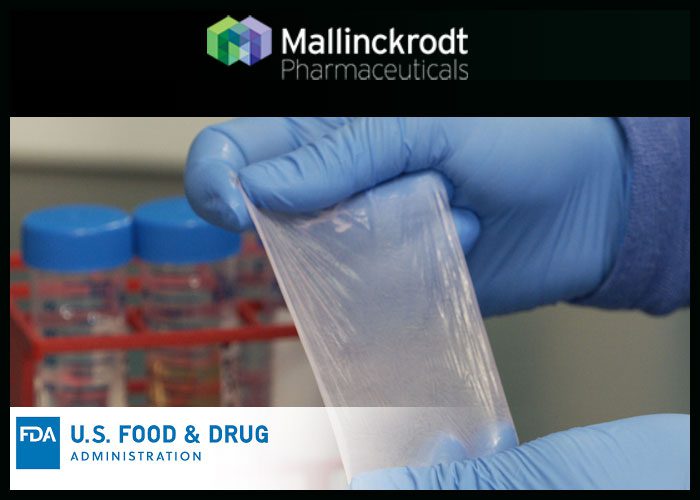Today, the U.S. Food and Drug Administration approved StrataGraft for the treatment of adult patients with thermal burns containing intact dermal elements (remaining deep skin layers) for which surgical intervention is clinically indicated (also referred to as deep partial thickness burns).
Thermal burns are typically caused by direct contact with an external heat source such as steam, scalding water, hot surfaces or fire.
“Serious burns can be an incredibly difficult injury to treat and can adversely affect more than just the skin. The goal of burn management is to help the patient return to the highest level of functionality and independence possible, while improving the overall quality of life,” said Peter Marks, M.D., Ph.D., director of FDA’s Center for Biologics Evaluation and Research. “This approval provides health care professionals a novel way to treat burn wounds.”
For many deep burns, treatment frequently involves the removal of the damaged, burned skin and replacement with a skin graft. Skin grafts are often the patient’s own healthy skin taken from their body and moved to the burned area to help it heal. This procedure, called an autograft, leaves a new wound where the healthy skin was removed.
StrataGraft is produced from two kinds of human skin cells (keratinocytes and dermal fibroblasts) grown together to make a bi-layered construct (a cellularized scaffold).
StrataGraft is for topical application, placed onto the burn by a healthcare provider. Over time, the patient’s skin cells should grow to replace the skin cells lost as a result of the burn. Treatment with StrataGraft can help avoid or decrease the amount of healthy skin that is needed for grafting.
The effectiveness and safety of StrataGraft are based on two randomized clinical studies involving a total of 101 adult patients with deep partial‑thickness thermal burns. In both studies, two deep partial-thickness burn wounds of comparable area and depth on each patient were identified and randomized to receive either a single topical application of StrataGraft or autograft. The effectiveness is demonstrated by the percentage of StrataGraft treatment sites that achieved a complete wound closure, and the significantly decreased need for autografts at the StrataGraft treatment sites.
Common side effects reported by patients who received StrataGraft in clinical studies were pruritus (itching), blisters, hypertrophic scar, and impaired healing (stalled healing process) at the treatment site. Overall, the safety profile of StrataGraft regarding wound‑related events, included erythema (redness), swelling, local warmth and wound site infections, was similar to that of autografting in these studies. There were no reports of rejection of StrataGraft in the clinical studies.
The FDA granted StrataGraft regenerative medicine advanced therapy (RMAT), Priority Reviewand Orphan Drug designations for this indication.
StrataGraft was developed in conjunction with the U.S. Department of Health and Human Services’ Biomedical Advanced Research and Development Authority.
Since the human keratinocyte cells were grown with mouse cells during initial stages of product development, StrataGraft is formally considered to be a xenotransplantation product (involving tissues or cells belonging to different species). Mouse cells are no longer used in the final manufacturing process. Due to StrataGraft containing cells from human donors and animal-derived materials, and because animal cells were used in early stages of product development, there is a risk of transmission of infectious diseases or agents although at this time transmission of infectious diseases or agents by StrataGraft has not been reported.
The FDA granted approval to Stratatech, a Mallinckrodt company.
